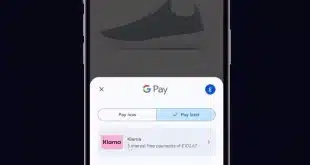Intuit Inc. on Monday dropped flat transaction fees for its GoPayment mobile-payments service just over two months after Square Inc. did the same thing, an indication that a price war could be breaking out between two of the major companies competing for brand-new and small businesses that use smart phones as payment-card acceptance devices.
GoPayment’s pricing for low-volume merchants, those processing approximately $1,000 or less in card volume per month, was 2.7% plus 15 cents on swiped transactions and 3.7% plus 15 cents for card-not-present transactions. For higher-volume merchants, the fee was 1.7% plus 30 cents on card-present sales and 2.7% plus 30 cents for card-not-present transactions. With Monday’s change, the percentage-based rates stay the same but the flat fees are gone. Intuit also discontinued flat fees on non-qualified bank card transactions, such as commercial cards, but pricing did not change for Intuit merchants that accept American Express Co. and JCB cards since those two companies set their own pricing. Intuit retained its $12.95 monthly fee for higher-volume merchants.
In February, Square dropped the 15-cent flat-fee component of its pricing for card-present sales so that merchants pay a straight 2.75%. Square charges 3.5% plus 15 cents for card-not-present transactions.
A spokesperson for Mountain View, Calif.-based Intuit said the company did “not specifically” drop the fees directly in response to Square. “We’re seeing that the industry overall is looking to simplify pricing,” she says. “And also, from talking with our customers, this is what they’ve been requesting. We’re really responding to what our customers have been asking.”
Earlier, Intuit raised percentage rates but began offering for free the card reader that attaches to iPhones and other smart phones and dropped the monthly fee for low-volume merchants. Intuit initially indicated that the free-reader program would expire in February, but the spokesperson says it will now run indefinitely.
With those changes and the new price cuts, Intuit hopes to keep GoPayment’s momentum going. “We have seen a nearly 700% increase in the number of people signing up for GoPayment each week compared to the beginning of the year (driven in large part by our free swiper offering),” Intuit said in an e-mailed statement. The spokesperson wouldn’t discuss margins, but says the growth has been worth it. “We’re really focused on getting more people using GoPayment,” she says.
Dropping flat fees can add to the impression of price cuts because the human mind finds such fees easier to comprehend than percentage-based pricing even if the percentage plan in reality costs less, according to merchant-acquiring industry researcher Adil Moussa, an analyst at Boston-based Aite Group LLC. “That can affect merchant adoption,” he says. “I can visualize the 30 cents in my head, and I don’t want to pay it. If you look at all pricing, there is always a very important psychological factor.”
It looks like Square and GoPayment are running neck and neck in charge volume. Square’s chief executive, Jack Dorsey, co-founder of the Twitter social network, recently said Square’s volume hit $2 million one day in April, double the $1-million-a-day threshold Dorsey said Square hit only in March. GoPayment\'s merchants are generating about $15 million a week in charge volume through GoPayment directly and the other Inuit payment services they use, the spokesperson says.
The small merchants Intuit and Square are targeting indeed seem to be hot commodities nowadays as the explosion in the smart-phone population has made it easy for entrepreneurs and business people who need to be away from the office to accept card payments without buying traditional terminals. Besides Square and Intuit, others pursuing the mobile-payment market include terminal maker VeriFone Systems Inc. with its PAYware Mobile products, Apriva Inc. with AprivaPay, and a number of independent sales organizations. At least one, North American Bancard, offers a free card reader.
One of those ISOs is Boston-based Merchant Warehouse, which launched its Merchantware Mobile smart-phone application two years ago. Since then, Merchant Warehouse has pulled back from pursuing the tiniest merchants and is focusing mostly on offering Merchantware Mobile to more traditional small businesses that need mobile-processing capabilities, according to Henry Helgeson, president. The former group has high attrition and low charge volume, he says. “We’re not targeting the micro-merchants any more,” Helgeson tells Digital Transactions News. “The quality was very low.”
Each company puts its own twist on its smart-phone program through underwriting and partners. VeriFone and Apriva, for instance, refer applicants to numerous acquirer partners. Most of the companies, including Intuit, which owns a big ISO, subject applicants for merchant accounts to traditional underwriting processes, but Square uses an unorthodox vetting system that, among other things, looks for clues to creditworthiness in an applicant’s social-network participation records.
Helegson thinks “there is a price war about to erupt,” especially as Square and Intuit duel for the micro-merchants. “What makes it work for Intuit and Square is the automated boarding process and the huge of amount of cash they’re willing to burn to get this up and running,” he says.





